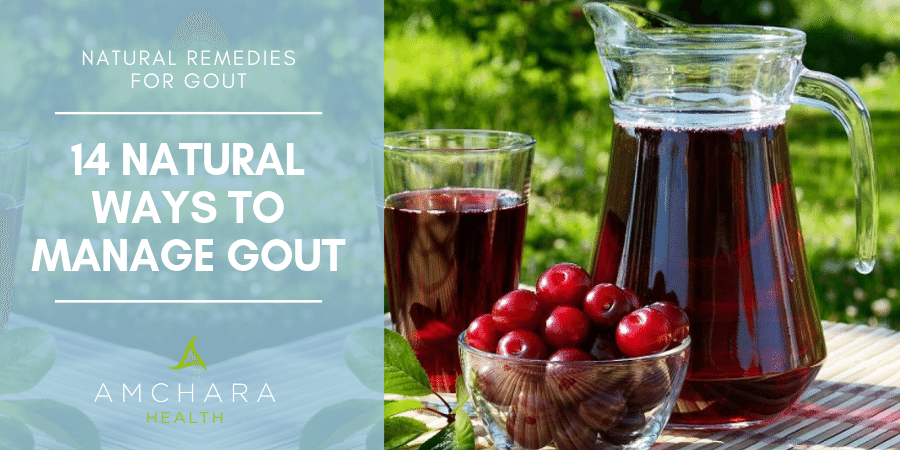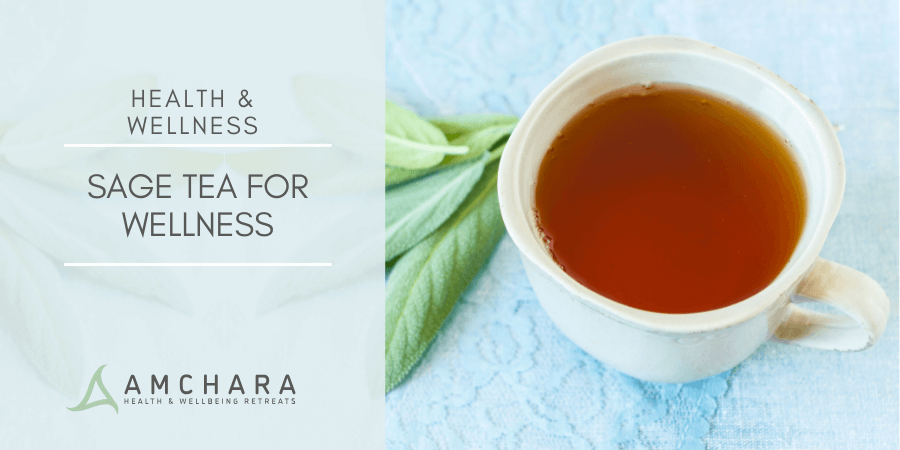Topics Covered in this article:
Gout is extremely painful and increasingly common.
Also known as gouty arthritis, Hippocrates referred to it as the ‘unwalkable disease’.
In this article we’ll look at 14 natural ways to manage gout.
Causes of Gout
This condition is caused by the build-up of a substance called uric acid.
Uric acid is produced in the body from protein and is usually expelled by the kidneys into the urine.
However, in some people it builds up in the body, forming crystals in the fluid surrounding the joints and causing inflammation, pain, redness and swelling.
Often it attacks the big toe joint, resulting in excruciating pain.
Other joints can also be affected such as the ankles, wrists, knees and elbows.
Unlike other forms of arthritis, gout can flare up very suddenly, in some cases overnight.
Attacks typically last anything up to ten days.
Traditionally connected with overindulgence and drinking too much port or red wine, gout was referred to as the ‘disease of kings’ because of its association with an affluent lifestyle.
However, this is outdated and incorrect because it can affect anyone.
It occurs most frequently in men, followed by post-menopausal women.
Gout is very common. Rates of the disease have been increasing worldwide since the 1960s.
According to the NHS, the incidence of gout in the UK has increased by almost 30% over the last 15 years.
People who suffer from kidney disease, high blood pressure, diabetes, heart disease, elevated cholesterol and those who are obese are more likely to suffer from gout and high uric acid levels.
Natural Remedies to Beat Gout
It’s long been recognised gout attacks are connected with food choices, with certain foods causing flare-ups.
Research is finding nutrition and lifestyle factors can reduce the likelihood of suffering from an attack of gout.
#1 Avoid Foods Rich in Purines
Purines are amino acids which are part of protein foods. When they are broken down by the liver, uric acid is produced.
Normally, the uric acid produced from purines would be safely eliminated from the body in the urine, but when gout occurs the body cannot excrete it quickly enough.
Therefore, foods which are naturally rich in purines may spark off a gout attack in certain people.
Purine-rich foods include:
- Organ meats like kidney and liver
- Sardines
- Shellfish
- Anchovies
- Yeast
These aren’t necessarily unhealthy foods, but you may find it best to avoid them if you are prone to gout.
Asparagus, mushrooms, peas, lentils and spinach also contain purine.
However, purine-rich vegetables don’t appear to be related to an increased risk of gout, for reasons which are so far unclear (1).
#2 Cherry Juice
Possibly the best-known remedy for gout is cherries.
Cherry juice can reduce inflammation and the build-up of uric acid.
Cherries are rich in antioxidants known as anthocyanidins and bioflavonoids which help to reduce uric acid levels.
One study found just two days of consuming cherries or cherry extract resulted in a 35% reduction in gout attacks in over 600 people (2).
#3 Avoid High Fructose Corn Syrup
Fructose is a natural sugar found in fruit. Our body is used to us consuming natural fruit sugars.
However, in modern times our consumption of fructose has escalated dramatically.
This is because of the widespread use of high fructose corn syrup, which is a sweetener extracted from corn.
It’s added to many processed foods – from sweetened drinks to cereal bars to ice cream.
During the production process, the glucose naturally found in corn is converted to fructose by the use of enzymes.
The liver is the only organ which can process fructose, and when large amounts of it are eaten, it is turned into fat.
Research has discovered eating fructose can trigger the production of uric acid.
This happens within minutes of consuming it (3).
One study found people drinking two or more sweetened drinks per day were 85% more likely to develop gout than those who only occasionally drank these drinks (4).
Fruit, although it contains fructose, also contains a whole array of beneficial substances such as antioxidants, so rightfully has a place in healthy nutrition.
But fructose in processed foods is another matter.
It’s wise to get into the habit of reading food labels to become aware of the widespread use of high fructose corn syrup.
#4 Bromelain
Bromelain is a type of enzyme which digests protein.
One natural source of bromelain is pineapple.
Apart from its function in our digestive system, bromelain is known to have an anti-inflammatory effect, by preventing the production of substances involved in inflammation.
It’s also thought to be able to increase blood flow and promote healing.
Enjoy fresh pineapple regularly, or alternatively bromelain is available as a supplement.
Remember that supplements are best taken under the guidance of a practitioner.
#5 Bioflavonoids
We already met bioflavonoids in connection with cherries.
They are a family of antioxidants which give plant foods their colour.
One example of a bioflavonoid is rutin, which is found in apples, citrus fruits and green tea.
Another is quercetin, which is naturally found in purple, green and red plant foods such as peppers, berries, tomatoes and kale.
These two substances are thought to decrease the production of uric acid by reducing the activity of an enzyme involved in its manufacturing process (5).
This is the mechanism which is inhibited by gout medications.
#6 Celery
Celery extract has been found in studies to decrease uric acid levels (6).
Celery juice is packed with antioxidants.
Simply munch celery sticks or you can enjoy the juice as an ingredient in a cleansing juice
#7 Enjoy Coffee in Moderation
A number of studies suggest coffee drinkers have a lower risk of gout.
Coffee appears to reduce levels of uric acid, but these effects don’t appear to be as a result of the caffeine in coffee (7).
Instead, it’s thought to be because it contains a substance called chlorogenic acid, which suppresses uric acid production (8).
Decaffeinated coffee also contains chlorogenic acid.
One study followed 45,000 men over 12 years and found those who drank four or more cups of coffee per day were between 40 and 60% less likely to suffer from gout than non-coffee drinkers (9).
#8 Drink Nettle Tea
According to the Arthritis Foundation, nettle extract may be helpful for gout.
It contains substances which suppress the formation of inflammatory molecules in the body (10).
Drink as a tea. In spring, nettle makes a wonderfully nutritious soup, and it can be used in many recipes instead of spinach.
#9 Avoid Alcohol
A review of studies involving 42,000 people found those who consumed more than three alcoholic drinks per day had more than double the risk of a gout attack compared to non-drinkers or those who drank occasionally.
Consuming between one and three drinks per day was also connected with an increased risk.
Although gout is traditionally connected with red wine or port, in fact beer is more likely to spark off an attack as it contains yeast, which is high in purines.
It’s thought alcohol may also reduce the rate at which uric acid is removed in the urine.
#10 Exercise and Weight Loss
You’re more likely to suffer from gout if you’re obese.
Even if you don’t reduce the amount of purine-containing foods eaten, losing weight has been found to reduce the likelihood of suffering from an attack.
Losing weight also reduces stress on joints.
People who exercise more are less likely to suffer from gout.
One study, conducted on runners, found the longer they habitually ran, the fewer gout attacks they had.
There was an inverse relationship of the disease with general fitness (11).
#11 Stay Hydrated
Drinking plenty of water helps flush uric acid out of the body in the urine.
People who drink eight or more glasses of water per day are less likely to experience an attack of gout (12).
#12 Apple Cider Vinegar, Lemon Juice and Turmeric
Lemon juice is believed to cause the urine to become more alkaline and in so doing encourage uric acid excretion, while curcumin, the active ingredient contained in turmeric, can also reduce uric acid levels.
Apple cider vinegar has been used as a traditional remedy for gout for many years.
To make a tasty gout remedy, mix the juice from half a lemon into warm water.
Add two teaspoons of turmeric and one teaspoon raw organic apple cider vinegar.
Drink twice daily, preferably on an empty stomach.
#13 Fish Oil
Although some oily fish are high in purines, omega-3 fats are known to reduce inflammation, particularly in the joints.
Preliminary research suggests foods with a high ratio of omega-3 to omega-6 fats may help to ward off an attack of gout.
#14 Magnesium
There is some evidence that low intakes of magnesium are connected with higher uric acid levels.
Good food sources of magnesium include green leafy vegetables, nuts, seeds and legumes.
Takeaway
The key to avoiding an attack of gout is to reduce uric acid levels and manage inflammation.
If you’d like to find out more about how to naturally manage gout, a nutritional practitioner specialising in personalised health can work with you towards optimum wellness.
We are dedicated to providing insightful, evidence based and actionable content.
Did you find this article useful?
Have you managed gout through food and lifestyle?
What strategies have been useful for you?
Please share your experiences, we’d love to hear from you.
READ THIS NEXT:




